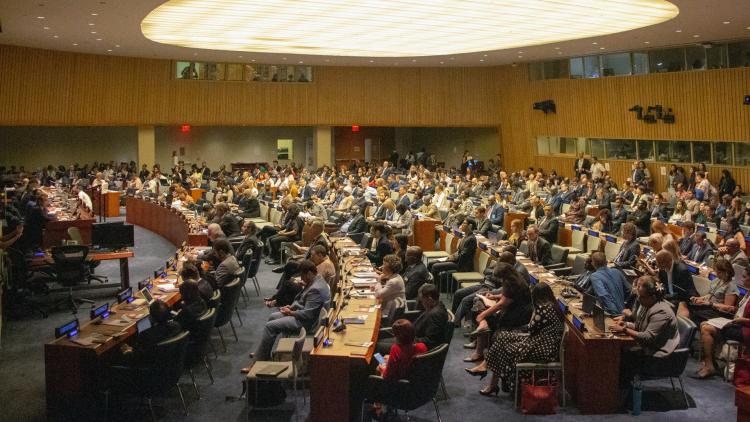General Diplomatic Studies

Key information
- Start date
- End date
- Duration
- Term 1
- Module code
- 15PFFH014
- FHEQ Level
- 7
- Credits
- 15
- Department
- Centre for International Studies and Diplomacy
Module overview
This module will explore the instruments and strategies of diplomacy and asks what role power plays in diplomacy. It will consider the significance of multilateralism in diplomacy and how this has changed since the end of the Cold War. It examines coercive diplomacy, the potential of preventative diplomacy and also explores the role changing technologies have in transforming diplomacy.
Secondly, the module asks how traditional concepts of diplomacy (understood as an activity of states) have been affected by the democratisation and globalisation of diplomacy. It investigates the role of NGOs, International Courts, Corporate actors, and other non-state actors and activities in shaping diplomacy. The course examines international interactions of such groups against a background of more traditional (inter-state) diplomatic practice.
Objectives and learning outcomes of the module
- Throughout this module students will gain an understanding of classical understandings of diplomacy and its components in tension with the contemporary world.
- At the end of this module students will be able to independently and critically analyse world events for their diplomatic implications.
- They will have a broad understanding of various modes of diplomacy. (Bilateral, multilateral, crisis, summitry, institutional).
- They will appreciate the differences and implications of different but overlapping forums of diplomacy (the embassy, cyberspace, popular, corporate, celebrity).
- They will be able to critically appraise various approaches to the ‘national interest’ and the resulting policy implications including the tools of ‘power’ at a states disposal.
- Students will also have encountered the disciplinary limits to the study of diplomacy, the silencing impact of theories and practices as well as the reach of critiques emanating from discourse analysis, gender studies and post-colonial approaches.
Workload
The module will be taught over 10 weeks with:
- 1 hour lecture per week
- 1 hour tutorial per week.
Method of assessment
• Assignment 1: 20%
• Assignment 2: 80%
Suggested reading
- No set textbook - Alison Holmes and Simon Rofe (eds.), Global Diplomacy (Westview 2016), Pauline Kerr and Geoffrey Wiseman, Diplomacy in a Globalizing World (Oxford University Press, 2012) T covers a lot of ground including some history, concepts, international relations and many detailed diplomatic issues and questions.
- Hedley Bull and Adam Watson (eds), The Expansion of International Society (New York: Oxford University Press, 1984).
- Sugata Bose, A Hundred Horizons: The Indian Ocean in the Age of Global Empire (Cambridge, Mass.: Harvard University Press, 2006).
- Anthony Pagden, Worlds at War: The 2,500 Year Struggle Between East and West (Oxford: OUP, 2009).
- John M Hobson, The Eurocentric Conception of World Politics: Western International Theory, 1760-2012 (Cambridge: Cambridge University Press, 2012).
Disclaimer
Important notice regarding changes to programmes and modules
